Future Space
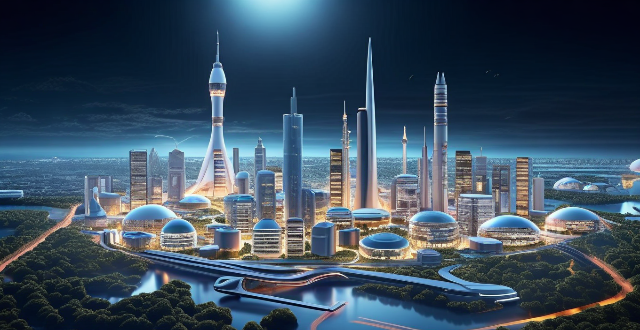
How does space exploration inspire future generations ?
Space exploration has been a source of inspiration for future generations in various ways, including igniting curiosity and wonder, advancing scientific knowledge, promoting international collaboration, encouraging careers in STEM, inspiring creativity and art, and nurturing resilience and perseverance. As we look toward the future, space exploration will continue to capture the imagination of young people around the world and spur them on to become the next generation of explorers, scientists, and engineers.
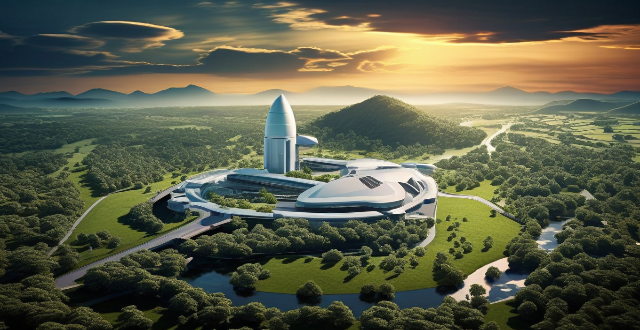
What is the future of space tourism and its implications on Earth's resources ?
The development of space tourism by private companies like SpaceX, Blue Origin, and Virgin Galactic may make it more accessible to the public in the future. However, it raises concerns about its environmental impact, economic considerations, ethical concerns, and long-term sustainability. It is crucial to consider these implications to ensure responsible use of Earth's resources while exploring space tourism.
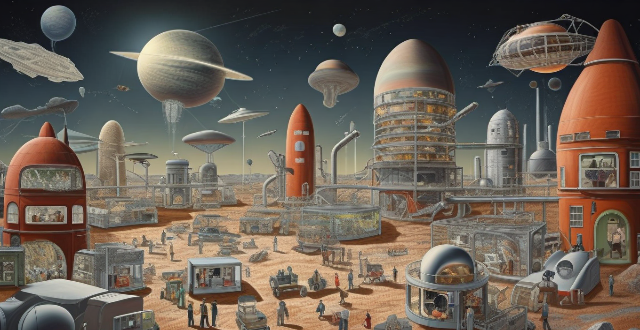
How does space exploration benefit humanity ?
The benefits of space exploration for humanity include technological advancements, economic growth through job creation and commercial opportunities, global collaboration fostering peace, scientific discoveries about our universe, inspiration and education for future generations, preserving Earth by monitoring environmental changes, and national security measures. These benefits touch every aspect of human life, making space exploration a significant investment in our collective future.

What are the current advancements in space exploration ?
The text discusses current advancements in space exploration, including commercial space travel, Mars and lunar exploration, deep space probes, and telescopes and observatories. These advancements showcase humanity's relentless pursuit of knowledge and understanding of the universe around us.
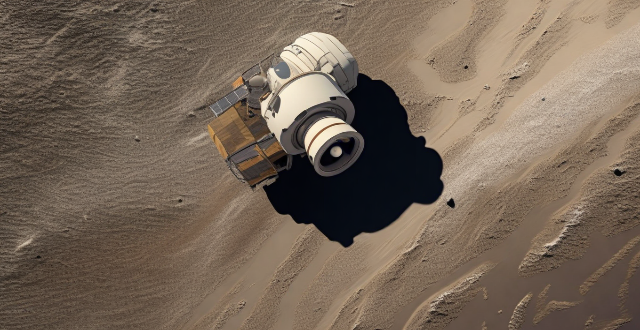
How much does it cost to travel to space ?
The cost of traveling to space varies depending on the type of mission, duration of stay, and provider. Suborbital flights are the most affordable option, while lunar and Mars missions are significantly more expensive. Factors such as training, technology, and risk contribute to the high costs. As technology advances and more companies enter the industry, the cost may decrease, but space travel is unlikely to become affordable for the average person in the near future.
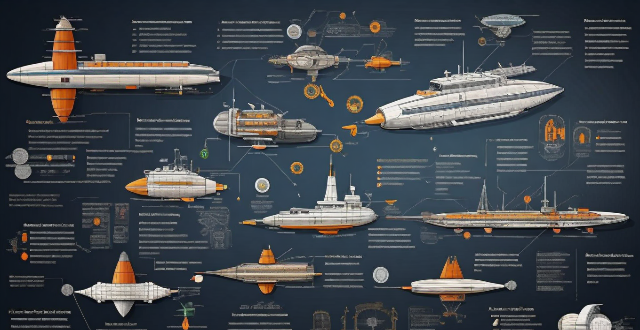
What are the current advancements in space travel technology ?
Over the years, scientists and engineers have made significant advancements in various aspects of space travel. Current advancements include propulsion systems like ion thrusters, nuclear propulsion, and solar sailing; life support systems that recycle water and air and closed-loop life support systems; and reusable spacecraft such as the Space Shuttle program, SpaceX Dragon and Falcon 9, and Blue Origin New Shepard. These advancements show great promise for the future of human exploration beyond our planet.
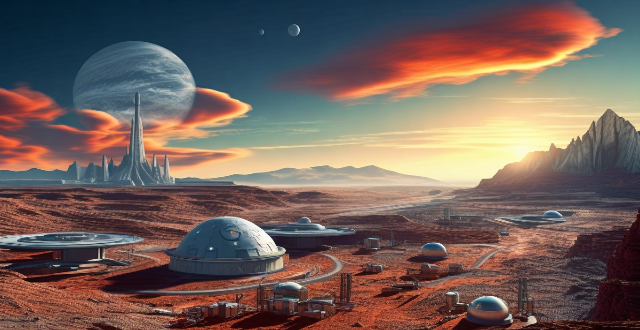
How does space exploration impact global cooperation and diplomacy ?
Space exploration has been a significant driver of global cooperation and diplomacy since the dawn of the space age. The pursuit of understanding our universe and the quest to explore beyond Earth's boundaries have fostered international collaboration, technological advancements, and diplomatic engagements that transcend traditional geopolitical tensions. In this discussion, we will delve into the various ways space exploration influences global cooperation and diplomacy.
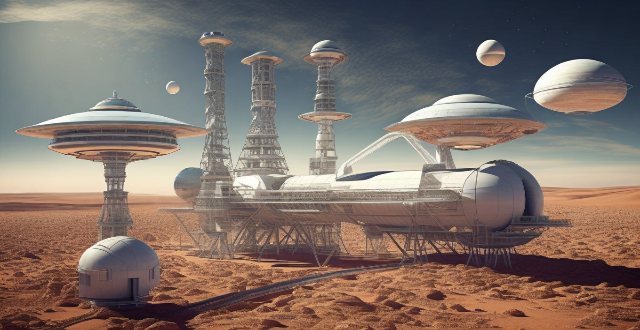
What are the ethical considerations of space exploration and colonization ?
The article discusses the ethical considerations of space exploration and colonization, emphasizing the importance of balancing potential benefits with risks, considering environmental impact, addressing interplanetary diplomacy, and developing a comprehensive legal and regulatory framework. It highlights the need for a strong ethical framework to ensure responsible and sustainable pursuit of space endeavors.
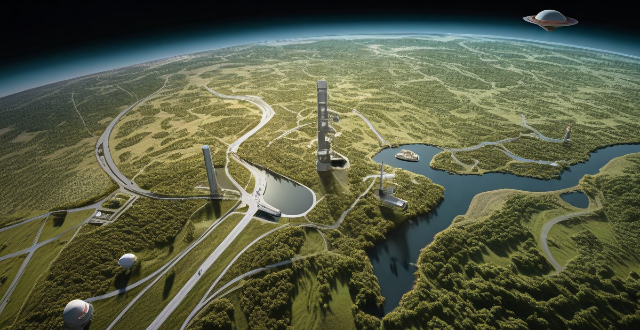
What are the current trends in commercial space exploration ?
Commercial space exploration is a rapidly evolving field, drivenCommercial space exploration is a rapidly evolving field, driven, economic incentives, and small satellite constellations for internet and Earth observation, space tourism and commercial space stations, Moon and Mars exploration, in-space manufacturing and resource utilization, and international cooperation and legal frameworks. These trends demonstrate that commercial space exploration is not only expanding our knowledge of the universe but also creating new industries and opportunities for economic growth.
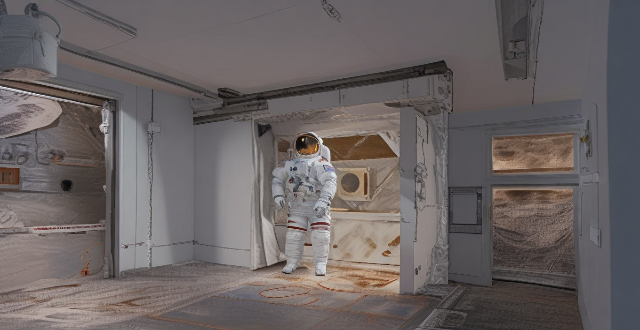
What are the challenges faced by astronauts during long-duration space missions ?
Long-duration space missions pose physical, psychologicalLong-duration space missions pose physical, psychological astronauts, including including muscle atrophy, bone loss, radiation exposure, immune system changes, isolation, communication delays, sleep disturbances, resource management, equipment maintenance, and task scheduling. Addressing these challenges is crucial for the success of future deep space exploration efforts.
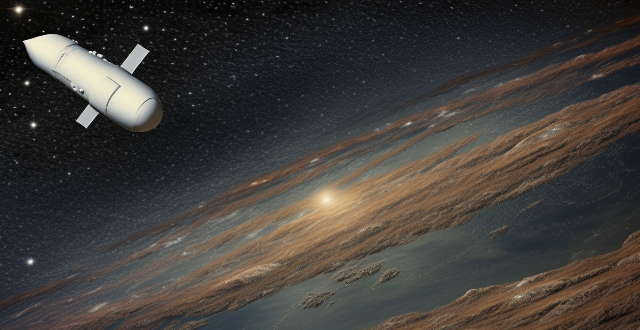
What role does satellite communication play in space exploration and research ?
Satellite communication is crucial for space exploration and research, enabling data collection, real-time communication, navigation, and international collaboration. It will continue to play a vital role in future applications such as deep space exploration, autonomous robotics, and quantum communication.
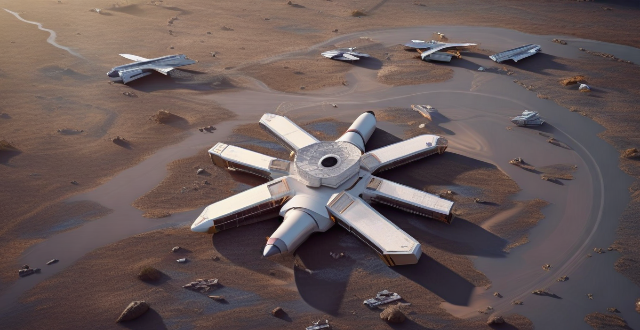
How sustainable is the commercial space industry, and what environmental concerns should be addressed ?
The commercial space industry is facing environmental concerns such as carbon emissions, space debris, natural resource depletion, and radioactive waste disposal. To address these issues, companies can adopt sustainable practices, invest in new technologies, and explore alternative materials and energy sources. By doing so, they can reduce their impact on the environment and contribute to a more sustainable future.
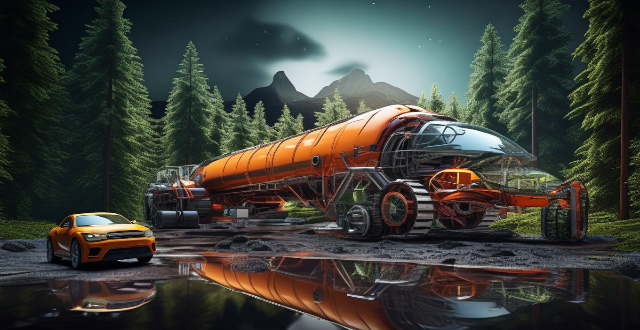
How has rocket technology evolved since the early days of space exploration ?
The evolution of rocket technology has been a journey from liquid-fueled rockets to reusable launch vehicles, marked by significant milestones. The development of ICBMs during the Cold War laid the groundwork for space exploration technologies. Multistage rockets increased payload capacity and efficiency. Reusable rockets reduced costs and paved the way for sustainable space travel. Future prospects include advanced propulsion systems like ion thrusters and nuclear propulsion, promising faster transit times and more efficient energy use.
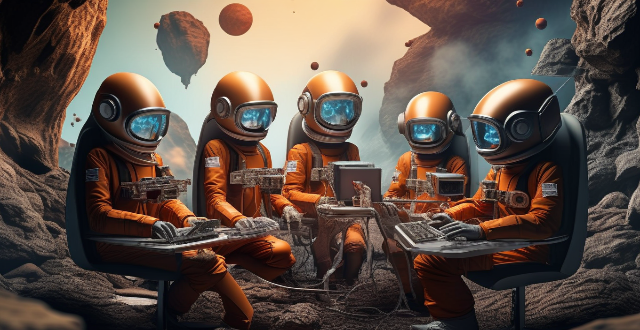
What is the role of private companies in space exploration ?
Private companies have become key players in space exploration, driving technological advancements, reducing costs, and fostering innovation. They are at the forefront of developing new technologies such as reusable rockets, advanced propulsion systems, and robotic explorers. Private companies often operate with leaner budgets and more streamlined processes than government agencies, allowing them to deliver space missions at a lower cost. This cost-effectiveness is crucial for making space exploration more accessible and sustainable over the long term. Private companies are known for taking risks and pursuing innovative ideas that might not be considered by government agencies due to budget constraints or strategic priorities. Their involvement has made space missions more accessible and sustainable while opening up new possibilities for exploring our solar system and beyond.
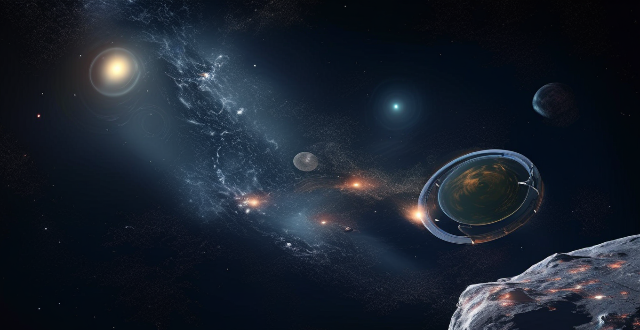
How will commercial space tourism change the way we view Earth and space ?
The advent of commercial space tourism is set to revolutionize our understanding of both Earth and space by making space travel more accessible. It allows us to view our planet from a different perspective, fostering a greater sense of global awareness and interconnectedness, as well as an appreciation for the fragility and beauty of our planet. Additionally, it provides the opportunity for people to experience space firsthand, leading to a deeper understanding of the challenges and opportunities presented by space exploration, renewed interest in science and technology, and increased demand for education in STEM fields. Overall, commercial space tourism has the potential to change the way we view Earth and space by providing unique perspectives and experiences that can help us better appreciate our planet and expand our understanding of the universe beyond.

What are the best ways to quickly clean and organize a messy space ?
When faced with a cluttered or messy space, it can feel overwhelming to know where to start. Here are some effective strategies to quickly clean and organize any area: 1. **Sort and Categorize**: Divide the space into sections or zones to tackle one at a time and gather similar items together for easier decision-making. 2. **Declutter Ruthlessly**: Be ruthless and discard or donate things that are no longer needed or haven't been used in a while, and separate recyclables and trash from items that may still be useful to someone else. 3. **Create a Cleaning Plan**: Jot down specific tasks for each zone to ensure nothing is overlooked and assign priorities based on what needs cleaning the most or what will have the biggest impact. 4. **Use the Right Tools**: Have all necessary cleaning supplies on hand like dusters, wipes, vacuum, and cleaning solutions, and utilize storage boxes, shelves, hanging organizers, and labels to keep things tidy. 5. **Work in Sections**: Focus on one area at a time to prevent feeling overwhelmed and help you see progress, and clean before organizing by dusting, vacuuming, and wiping down surfaces before putting things away. 6. **Maintain Order**: Set aside time regularly to maintain order and prevent future buildups, and encourage everyone using the space to put things back where they belong after use. 7. **Employ Time Management Techniques**: Give yourself a limited amount of time to complete each task to stay focused and efficient, and take short breaks to avoid burnout and maintain high energy levels. 8. **Involve Others**: Get family members or coworkers involved in the cleaning process if possible, as working together can make the job more enjoyable and less time-consuming. 9. **Keep It Simple**: Don’t overcomplicate storage; use what works and is easy to maintain, and prioritize practicality in organization over how it looks. Functionality should dictate placement.

Is space travel only for astronauts or can ordinary people go too ?
Space travel, once a distant dream, has become a reality with the advent of commercial spaceflight companies. However, the question remains: is space travel only for astronauts or can ordinary people go too? In the early days of space exploration, only highly trained astronauts were selected to venture into space. These individuals underwent rigorous training and selection processes to ensure their physical and mental fitness for the challenges of spaceflight. Over time, the landscape of space travel has changed significantly. Private companies have entered the arena, offering opportunities for ordinary people to experience spaceflight. This shift has opened up new possibilities for those who dream of exploring the final frontier. Several private companies have emerged in recent years, each with its own approach to space tourism. Some of the key players include Blue Origin, SpaceX, and Virgin Galactic. While space travel may seem like an extravagant luxury, there are several potential benefits for ordinary people who choose to embark on this adventure. These benefits include experiencing weightlessness, viewing Earth from space, and advancing science and technology related to space exploration.

Can you explain the concept of a space launch system and its importance for future missions ?
A space launch system, or rocket, is a vehicle designed to carry payloads from Earth's surface into space. It consists of various stages containing propulsion systems that provide the necessary thrust to overcome Earth's gravity and achieve the desired orbit or trajectory. The importance of space launch systems for future missions cannot be overstated, as they are essential for exploring space, conducting scientific research, and enabling commercial activities beyond our planet. Key components of a space launch system include the propulsion system (engines and fuel tanks), payload (satellites, spacecraft, or other materials), stages (multiple stages with their own propulsion systems), and guidance and control systems (to ensure correct trajectory during launch and deployment). Space launch systems play a crucial role in advancing our understanding of the universe by enabling scientific research and exploration missions. They allow us to study celestial bodies such as planets, moons, asteroids, and comets, as well as investigate phenomena like black holes and dark matter. By launching telescopes, probes, and rovers into space, we can gather valuable data and insights that would otherwise be impossible to obtain from Earth's surface. As humanity looks towards returning humans to the Moon and eventually sending them to Mars, space launch systems become even more critical. They will be responsible for transporting astronauts, habitat modules, life support systems, and other essential equipment needed to establish a sustainable presence on these extraterrestrial bodies. Additionally, space launch systems will enable the transportation of resources mined from asteroids or other celestial bodies back to Earth or used in space-based manufacturing facilities. The growing commercial interest in space has led to numerous private companies developing their own space launch systems. These ventures aim to provide services such as satellite deployment, space tourism, and even asteroid mining. Space launch systems are essential for these businesses to thrive, as they provide the means to access space and deliver their products and services.

How would a lunar base affect future space missions to Mars and other celestial bodies ?
A lunar base is expected to significantly impact future space missions, including those to Mars and other celestial bodies. The establishment of a permanent settlement on the Moon would lead to the development of new technologies, such as advanced propulsion systems and life support systems. These advancements would be crucial for future missions to Mars and beyond, where similar challenges would need to be addressed. A lunar base would also provide an opportunity to test and refine these technologies in a more controlled environment than Earth. Living on the Moon would have physiological and psychological effects on humans, such as changes in bone density and stress. By studying these effects and developing methods to mitigate them, scientists could better prepare astronauts for long-term missions to Mars and other celestial bodies. Additionally, understanding how humans adapt to living on the Moon could provide valuable insights into how they might adapt to living on other planets or moons. A lunar base would provide a closer location for logistical support and supply chain management compared to Mars or other celestial bodies. This proximity would allow for easier transportation of supplies, equipment, and personnel between Earth and the Moon, reducing costs and increasing efficiency. The establishment of a lunar base would also require the development of effective resupply and maintenance strategies that would be applicable to future missions to Mars and other celestial bodies. A lunar base would provide an excellent opportunity for training astronauts for future missions to Mars and other celestial bodies. By participating in simulated missions on the Moon, astronauts could gain valuable experience in operating in a low-gravity environment, performing scientific experiments, and maintaining their physical and mental health. The establishment of a lunar base would also require the development of new crew selection criteria that would consider factors such as physical fitness, psychological resilience, and technical skills. The establishment of a lunar base would likely generate increased global interest in space exploration, leading to greater international collaboration and partnerships. This collaboration could result in shared resources, expertise, and funding for future missions to Mars and other celestial bodies, reducing costs and increasing efficiency. International collaboration could also lead to the standardization of technologies and practices across different space agencies, reducing confusion and increasing the overall effectiveness of these missions. In conclusion, a lunar base would have a significant impact on future space missions to Mars and other celestial bodies. From advancements in technology and human adaptation to logistical support and international collaboration, a lunar base would provide valuable lessons and experiences that would help prepare astronauts for long-term missions beyond Earth's orbit. As such, the establishment of a lunar base should be seen as an essential step towards achieving our ultimate goal of exploring and settling other planets and moons in our solar system.

How has private investment impacted the development of space technology ?
Private investment has significantly impacted space technology development by increasing research and development funding, reducing costs, improving efficiency, and driving innovation. Private companies like SpaceX and Blue Origin have made advancements in reusable rockets, satellite communications, and lunar exploration. These investments have also enabled new business models and increased accessibility to space for smaller organizations.

What are some creative ways to quickly declutter and organize a small space ?
To quickly declutter and organize a small space, start by identifying problem areas and setting clear goals. Sort and categorize belongings into "keep," "donate," "sell," or "trash" piles. Maximize storage through vertical space, multifunctional furniture, and transparent containers. Get creative with storage solutions by repurposing household items and DIY projects. Finally, maintain order with regular cleaning and the "one in, one out" rule to prevent clutter buildup.
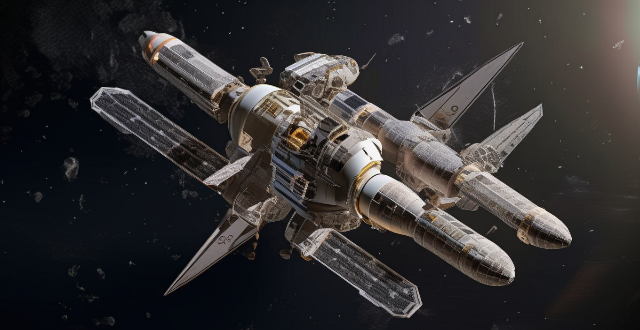
Who are the major companies involved in commercial space travel ?
Commercial space travel has become a reality with the advancements in technology, and several companies are making significant contributions to the industry. Major companies involved include SpaceX, Blue Origin, Virgin Galactic, Boeing, and Sierra Nevada Corporation (SNC). These companies are developing reusable launch vehicles and reliable rocket engines, as well as spacecraft designed to carry cargo and humans to and from low Earth orbit destinations such as the International Space Station. Their unique technologies and innovations aim to make space travel more accessible and affordable for both scientific research and tourism purposes.
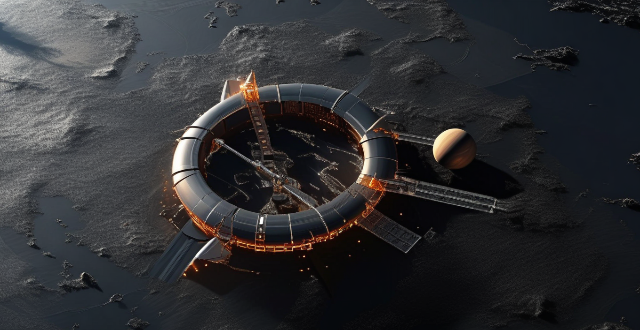
How would a lunar base contribute to humanity's understanding of the universe ?
A lunar base would significantly contribute to humanity's understanding of the universe by providing advanced research opportunities in geology and astronomy, driving the development of space technology, serving as a training ground for future space missions, and promoting international collaboration.
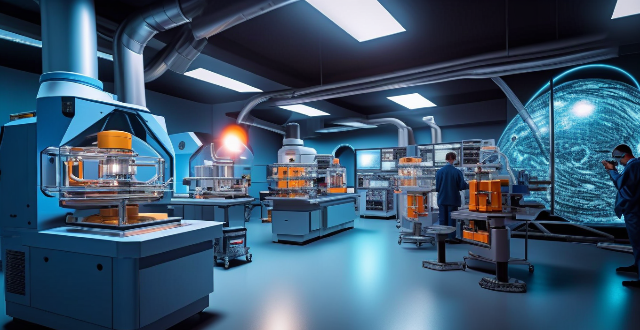
How does space exploration contribute to our understanding of the universe ?
Space exploration has been a crucial tool in expanding our knowledge about the universe. It has allowed scientists to observe and study phenomena that are impossible or difficult to replicate on Earth. In this article, we have discussed how space exploration contributes to our understanding of the universe through observation of cosmic phenomena, study of the solar system, testing scientific theories, and development of new technologies. By continuing to explore space, we will undoubtedly gain even more knowledge about the vastness and complexity of the universe.

What is the impact of climate decisions on future generations ?
This text discusses the far-reaching impacts of climate decisions on future generations, including environmental issues such as rising sea levels and loss of biodiversity, economic shifts related to job markets and infrastructure costs, and societal effects like health concerns and political stability. It emphasizes the importance of taking immediate action to mitigate these impacts and create a sustainable future for all.

What are some clever travel packing hacks for saving space ?
Traveling can be an exciting adventure, but packing your belongings can sometimes feel like a daunting task. However, with some clever packing hacks, you can maximize the space in your suitcase or backpack and avoid overpacking. Here are some tips to help you save space while packing: - Roll Your Clothes: Instead of folding your clothes, roll them up tightly. This not only saves space but also helps prevent wrinkles. You can even roll multiple items together, such as a shirt and its corresponding undergarments, to keep them organized. - Use Compression Bags or Packing Cubes: Compression bags allow you to squeeze out all the air from your clothing, significantly reducing their volume. Packing cubes, on the other hand, help you organize your items and make the most of the available space by filling odd-shaped gaps within your luggage. - Fill Your Shoes: Shoes tend to take up a lot of room, but they can also serve as storage containers. Stuff small items like socks, chargers, or even jewelry inside your shoes to save space elsewhere. Just make sure the items are clean and won't damage the shoes. - Layer Your Clothes: When packing outfits, layer them on top of each other rather than placing them side by side. This way, you can see everything at once and ensure that you have enough combinations without having to pack extra pieces. - Utilize Every Inch of Space: Think about the pockets in your luggage, the space inside your hats, and even the hollow tubes of toiletry bottles. These areas can hold small items like headphones, adapters, or medications that would otherwise take up valuable real estate in your bag. - Wear Your Bulkiest Items: If you have bulky items like sweaters, jackets, or boots, consider wearing them during travel rather than packing them. This not only saves space but also keeps you warm if you're traveling to a cold destination. - Choose Versatile Clothing: Pack items that can be worn in multiple ways or dressed up and down. For example, a scarf can double as a beach cover-up, and a dress can transition from day to night with different accessories. - Limit Your Toiletries: Instead of bringing full-size bottles, transfer your toiletries into smaller travel containers. You can also opt for solid shampoo bars or soap instead of liquid products to save space. - Pack According to Your Itinerary: Plan your outfits ahead of time and only pack what you know you will wear. Consider the activities you have planned and the weather at your destination to avoid overpacking unnecessary items.

How do I manage storage space on my Apple device ?
Managing Storage Space on Your Apple Device Checking Storage Space: - Open Settings and tap General. - Select iPhone Storage (or iPad/iPod Storage). - View a bar graph showing used and available storage, and a list of apps sorted by storage usage. Tips for Managing Storage Space: 1. Delete Unused Apps: Remove apps from the Home Screen or through Settings to free up space. 2. Offload Unused Apps: Enable Offload Unused Apps in Settings to remove apps while keeping their data. 3. Optimize Photo Storage: Use Optimized Storage in Photos settings and manually delete unwanted photos/videos. 4. Clear App Cache and Data: Offload apps to keep their data and reinstall them to remove it. 5. Use Cloud Services: Back up to iCloud and store files in iCloud Drive to save local storage. 6. Manage Messages: Auto-delete old messages and review attachments before deleting conversations. 7. Manage Media and Downloads: Stream content instead of downloading and delete downloaded episodes and songs. 8. Other Tips: Regularly check storage, disable auto downloads, and consider resetting your device if needed.
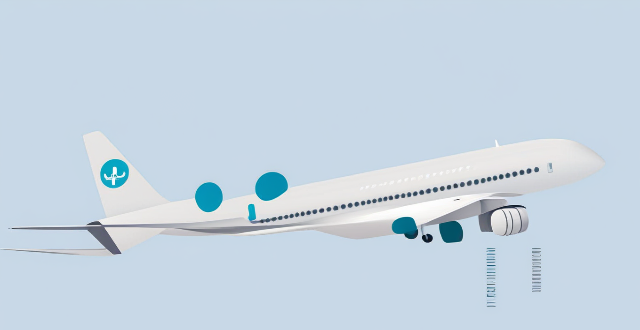
What are the safety measures taken for space tourism ?
Space tourism requires rigorous safety measures, including physical trainingSpace tourism requires rigorous safety measures, including physical trainingancy, medical screenings, including physical training, spacecraft redundancy, medical screenings, and reliable communication systems.